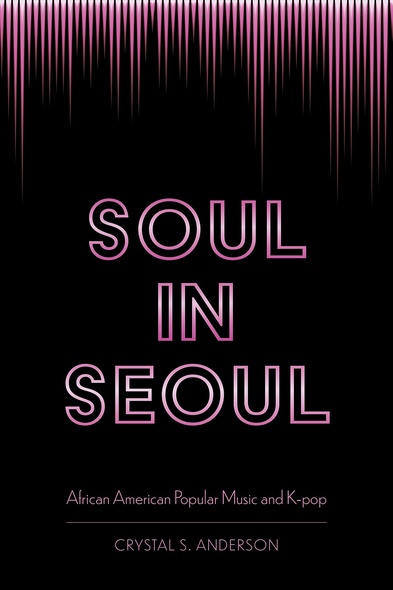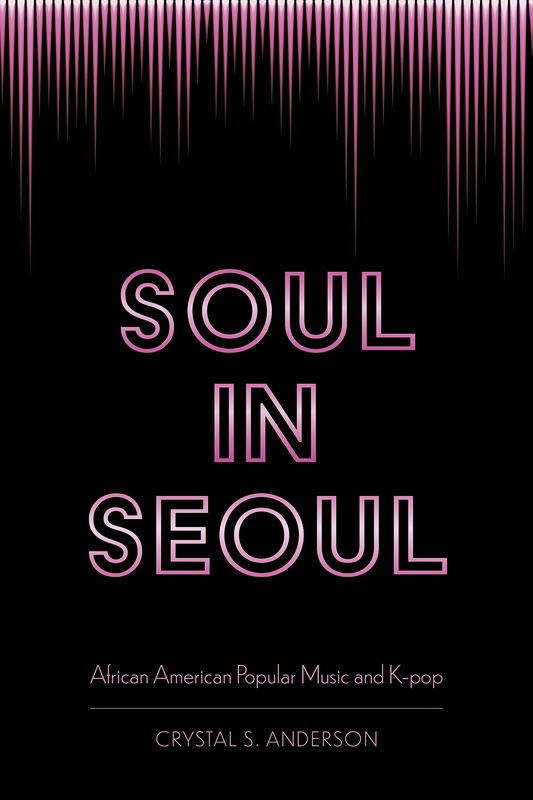
Soul in Seoul
African American Popular Music and K-pop
K-pop (Korean popular music) reigns as one of the most popular music genres in the world today, a phenomenon that appeals to listeners of all ages and nationalities. In Soul in Seoul: African American Popular Music and K-pop, Crystal S. Anderson examines the most important and often overlooked aspect of K-pop: the music itself. She demonstrates how contemporary K-pop references and incorporates musical and performative elements of African American popular music culture as well as the ways that fans outside of Korea understand these references.
K-pop emerged in the 1990s with immediate global aspirations, combining musical elements from Korean and foreign cultures, particularly rhythm and blues genres of black American popular music. Korean solo artists and groups borrow from and cite instrumentation and vocals of R&B genres, especially hip-hop. They also enhance the R&B tradition by utilizing Korean musical strategies. These musical citational practices are deemed authentic by global fans who function as part of K-pop’s music press and promotional apparatus. K-pop artists also cite elements of African American performance in Korean music videos. These disrupt stereotyped representations of Asian and African American performers. Through this process K-pop has arguably become a branch of a global R&B tradition. Anderson argues that Korean pop groups participate in that tradition through cultural work that enacts a global form of crossover and by maintaining forms of authenticity that cannot be faked, and furthermore propel the R&B tradition beyond the black-white binary.
Soul in Seoul is a labor of love, and K-pop junkies will eat it up.’
Students and scholars of K-pop music will find this book a refreshing and thorough study of the subject.
Crystal S. Anderson offers innovative and original approaches in interpreting K-pop music culture. Instead of emphasizing K-pop within Korean studies, Soul in Seoul positions its focus within a traditional American studies context in addition to fan studies to highlight the influence of African American pop music in K-pop culture. Anderson’s unique and rich research, tracing the intertextuality of K-pop influenced by African American music, including R&B, provides new insights on K-pop music, fan studies, and globalization theory.
This book is a must-read for students, audiences, and citizens who have an interest in and curiosity about the globalization of music and popular culture. By employing diverse approaches ranging from musicology, cultural studies, political economy, Korean studies and American studies, Anderson not only makes sense of K-pop and its connection to African American music in a different way, but she does so in the most understandable and authentic way. While Anderson’s analyses are sharp and authoritative, readers will find her deep love and affection for both K-pop and African American music in this masterpiece.
Crystal S. Anderson brings forth another pioneering study, a book destined to become a foundational text in our understanding of K-pop. This informative and insightful book examines the global influence of African American expressive culture and how it shapes and is reshaped in the transnational exchange of popular music forms.
Crystal S. Anderson is affiliate faculty in Korean studies, Department of Modern and Classical Languages at George Mason University. She is author of Beyond “The Chinese Connection”: Contemporary Afro-Asian Cultural Production, published by University Press of Mississippi. Her work has appeared in African American Review, Ethnic Studies Review, and Extrapolation.





